Our Services
Residential 'Bacteria' Well Test
$65 per sample
What this test is:
A sample or set of samples is assessed for the presence of E. coli, Total Coliforms, and biofilm.
This quick-turnaround test provides clients with a brief overview of their water quality within 28 hours of sample reception.
This test is designed to be affordable for residential clients on a budget while providing insight to their water quality and potential concerns.
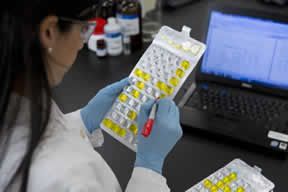
What this test includes:
- Instructions, forms, ice pack, and cooler
- Certified Total Coliform & E. coli Test
(commonly known as a ‘bacteria’ test) - Nitrate Screen (proprietary reagentless test)
- Mini-BIT™ – this test gives us a general snapshot of the health of your well and identifies potential impacts to quality
- ** We can upgrade this package with Certified testing for Arsenic & Nitrate through our partner lab for a total of $161/sample
Laboratory Services
Our laboratory analyses involve thorough testing of water samples using advanced, certified and proprietary methods that provide clients with accurate, reliable results. Our suite of testing identifies chemical contaminants and biological factors, and helps determine the causes of water quality and corrosion issues. In addition to our in-house testing capabilities, we partner with a leading industry laboratory to provide a full range of specialized analyses, ensuring we can address water quality concerns, no matter how complex.
For more information on our laboratory services, please see below. Contact us to determine which of the following tests are the best option for your water system and issue.
Expand each section below to get a description of each method.
Coliform & E. coli Testing
Our lab is a Wisconsin State Certified Lab for Coliform and E. coli testing, providing accurate and complete results. While many labs focus on presence/absence on their Coliform & E. coli testing, we go a step further and provide a quantitative number (MPN) with the IDEXX Colilert and QuantiTray system.
A quantitative assessment provides insight to the cause of the positive result, which is not possible with a Presence/Absence result. Homeowners, well drillers, real estate transactions, municipalities, and clients with a history of repeat Coliform and E. coli positives can all benefit from this testing, especially when paired with our BIT™ test or performed as a Mini-BIT™.
Biofilm Indication Test® (BIT)™
A sample or set of samples is assessed for the presence of biofilm, protein, and basic water quality indicators. This test provides the following information:
- The general type of biofilm that is present and whether it has a propensity towards corrosion of minerology or metals.
- The severity and extent of biofilm present. This determines whether biofilm is thin and manageable through periodic maintenance or is thick and recalcitrant and will require extensive treatments and/or more frequent maintenance.
- The biofilm’s impact on water quality. This test can detect select organic and inorganic products that biofilm releases to the water.
- Biofilm stability. Low biofilm stability can be an issue for systems experiencing periodic, brown-water events (i.e. biofilm sloughing event). These events release organics to the water, which can interact with a disinfectant and create a disinfectant demand, and corrosion products, which can result in elevated metals in drinking water and potential violation of the Lead Copper Rule.
Biofilm Activity Test® (BAT)™
A sample or set of samples is assessed for biofilm activity, which helps characterize the biofilm detected during the BIT™. This test indicates the following:
- The type of biofilm that is present and whether it has a propensity towards corrosion of minerology or metals. Characterizing biofilm helps determine the cause of biofilm and the best mitigation strategies for biofilm in a water system.
- Changes in biofilm conditions. Biofilm and the microorganisms present within biofilm can vary throughout a water system. These changes help highlight the complex nature of biofilm and the production and consumption of nutrients in a microbial community.
Legionella Indication Testing® (LIT)™
This assessment harnesses the capabilities of the BIT™ with a focus on the potential for Legionella and other waterborne pathogens to be present or persist within a water system. This testing can be paired with the CDC ELITE Plate Method to formulate a complete assessment of conditions within a water system. Unlike most labs that use only the CDC ELITE Method, our LIT™ goes beyond giving the client a Presence/Absence and CFU/mL result by identifying if conditions are present to support the presence of Legionella before a detection occurs or by helping determine why Legionella is persistent in a system.
Water Quality Testing
A sample or set of samples is assessed for the presence of unregulated nutrients, chemical components (alkalinity, nitrite, nitrate, orthophosphate, total phosphate, ammonia, chloride, sulfate, and total organic carbon), and metals. Results are then analyzed and compared to determine the following:
- Whether corrosion is occurring in the well or water system to release metals from minerology or metal components.
- Whether nutrients present in the source water would promote problematic biofilm growth and corrosion in the water system.
- Whether a nutrient limitation in the water would promote growth of an aggressive biofilm to cause non-uniform corrosion (pinhole and crevice corrosion).
- Whether biofilm is performing nitrification, denitrification, sulfate reduction or sulfur oxidation, which are metabolisms that promote corrosion.
- Test results are compared to WQI’s testing to determine the cause for biofilm, where biofilm is the most problematic, whether biofilm present would be corrosive or harbor potential pathogens, and how to control it.
Bench Testing
This service involves an assessment of how water quality may change following implementation of a recommended treatment. If an initial investigation reveals that a certain water treatment is needed to improve water quality, WQI can perform a small-scale bench test to determine the effectiveness of the recommended treatment prior to changes being made to a system. This service is especially common for water systems that experience high metals in their source water (Arsenic, Iron, Manganese, etc.), and determines if treatment could be interfered with by the presence of proteins, organic matter or biofilm.
Continued Monitoring
Each water system is unique and requires a unique approach. Continued Monitoring is highly recommended after an initial investigation to monitor conditions within your well or water system following implemented recommendations. Testing is usually a focused version of the initial testing and will help determine if changes to system maintenance are improving water quality as intended. This will also assess whether these actions need to be performed more or less frequently. This is highly recommended for municipalities and building owners performing water management. Routine sample kits can be scheduled and shipped by WQI.
Get Expert Water Quality Analysis Today
Field Services
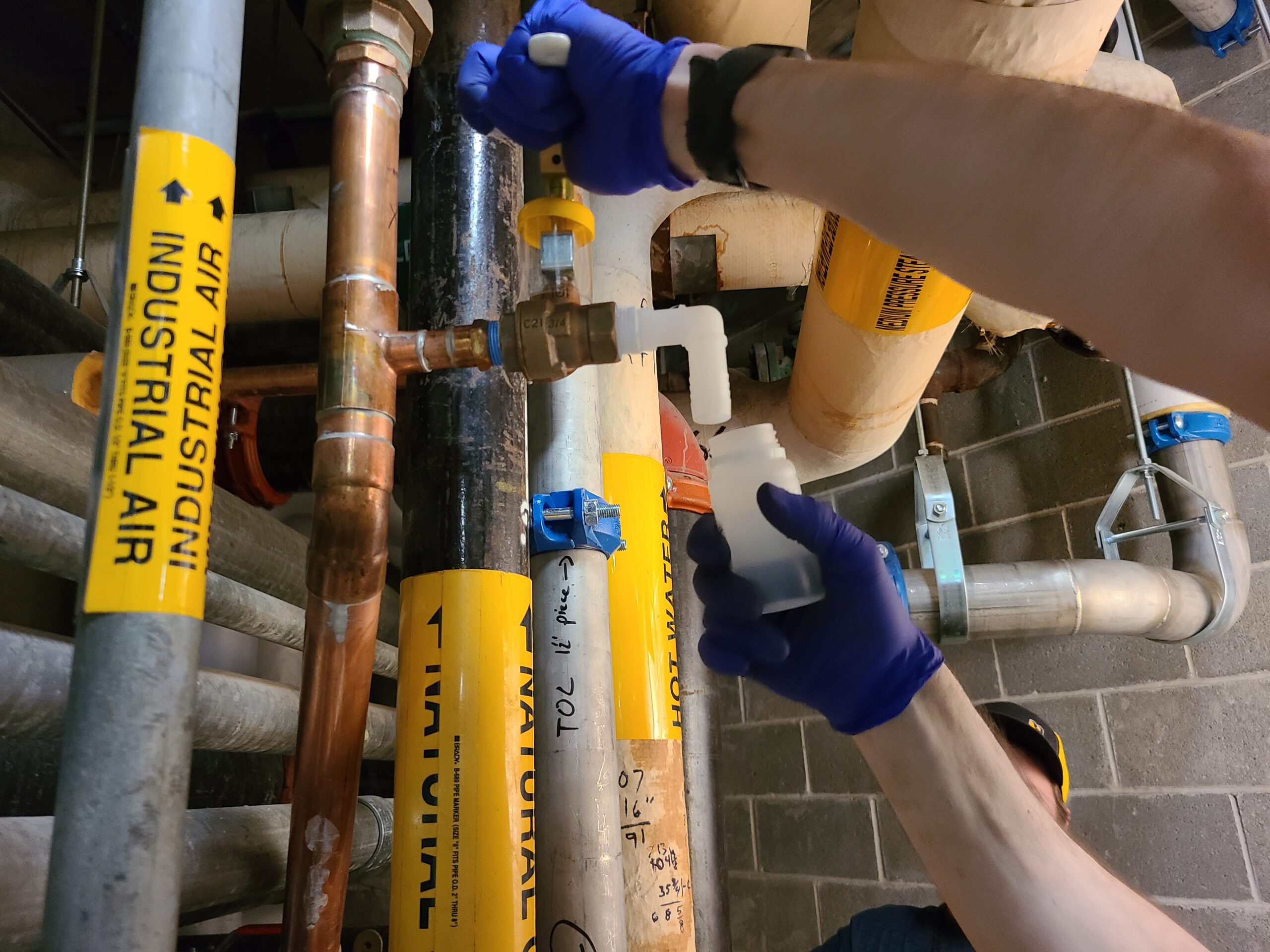
Sampling
WQI offers sample collection services, whereas many labs do not. Sample collection instructions are provided for all samples, and if your samples are part of an investigation, the instructions are tailored to your case. We realize not everyone is comfortable collecting samples, so please contact us for a sample collection quote.
Sampling services are available for homeowners as well as municipalities, state entities, and commercial clients. WQI also has the ability to work with realtors, home buyers, and loan officers to complete sampling as a “disinterested third party” for real estate transactions. Fees for all sample collection services are based on mileage, time spent traveling to and from the site, length of time spent on site, and coordination.
Flow Monitoring
Understanding flow rates is crucial for maintaining water quality. This service analyzes flow rates throughout your plumbing system, as water usage (or lack thereof) significantly impacts water quality. Real-time monitoring of water velocity, pressure, and temperature helps identify problem areas like dead ends and informs water management strategies to mitigate the effects of low-usage periods. Planning a pipe replacement or addition? Accurate water usage data is essential for properly sizing your plumbing system, and this service provides that critical information.
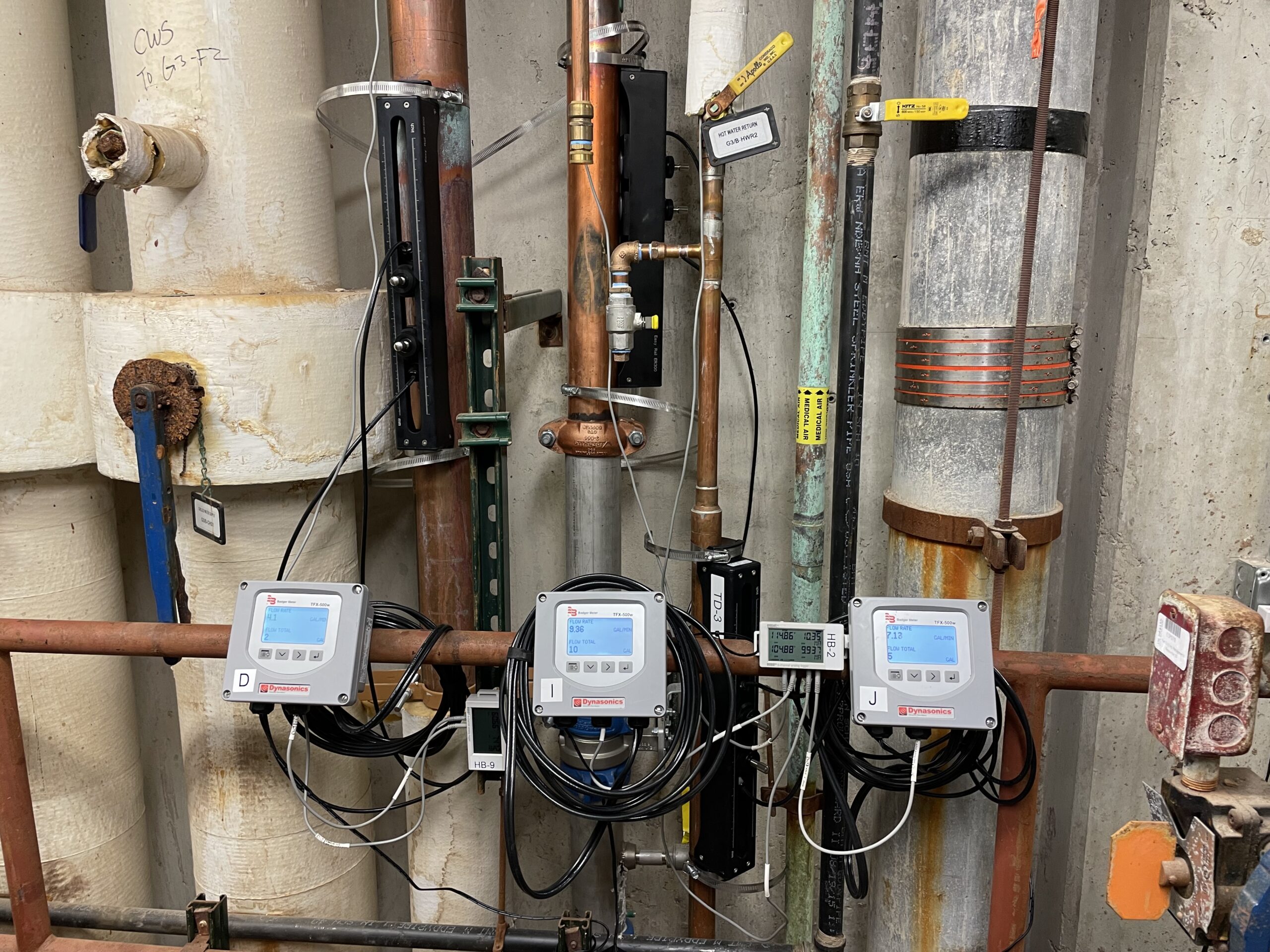
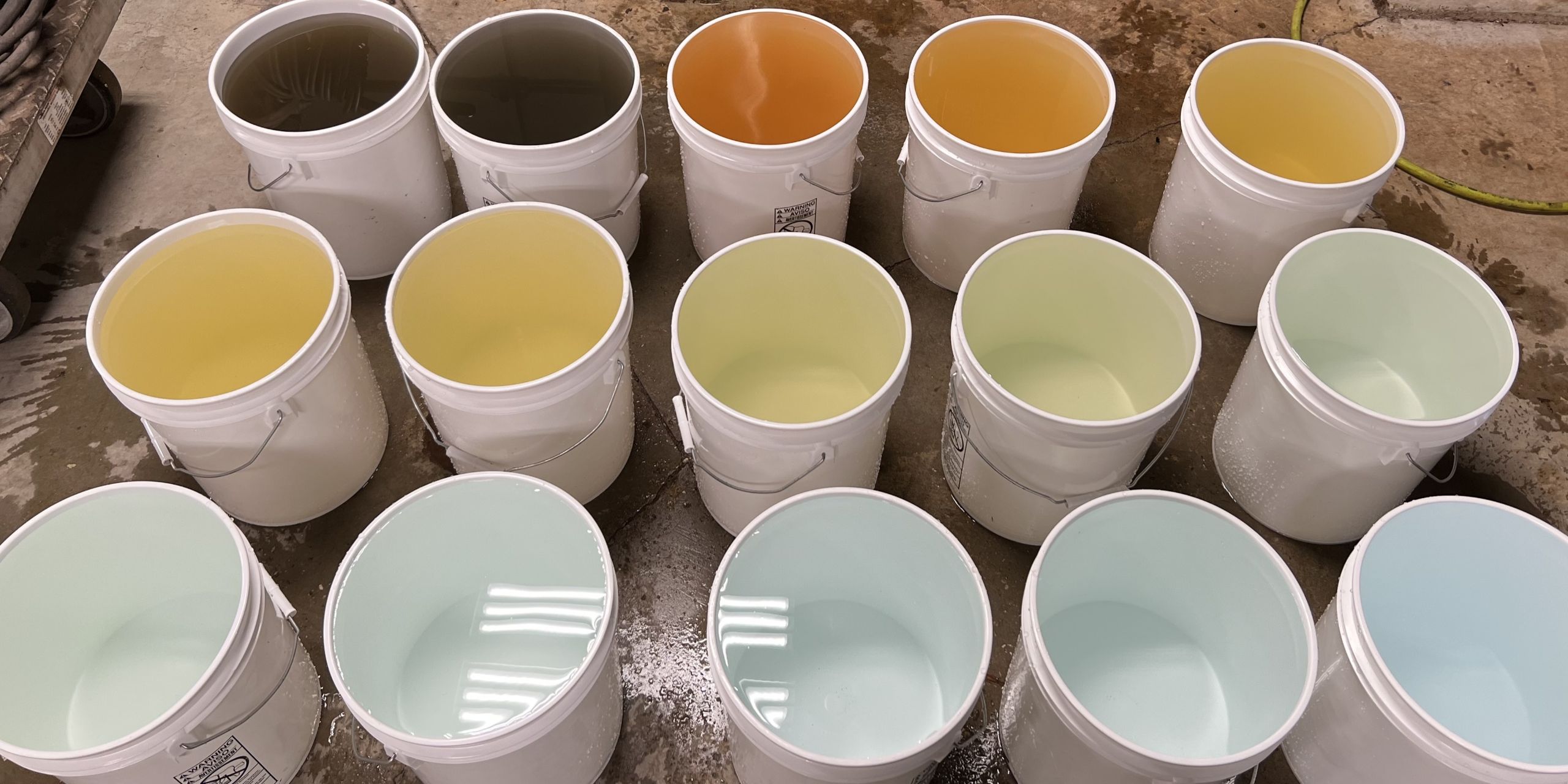
Treatments and Maintenance
Following a water quality investigation, WQI takes the burden off clients by performing or coordinating recommended treatment and maintenance activities. Our professionals handle complex procedures, ensuring proper execution whether performed directly by WQI or through our trusted network of local and regional contractors. These services include softener cleaning, service line flushing, filter cleaning and regeneration, and well rehabilitations.
Pilot Testing
Before implementing any water treatment changes, it’s essential to understand their potential impact on water quality. This service assesses the effectiveness of proposed treatments, whether recommended by WQI following an investigation or initiated by a water utility addressing ongoing issues. WQI conducts on-site pilot tests to validate treatment efficacy before system-wide changes are made. This testing is often a DNR requirement for public water systems, ensuring improvements are realized without inadvertently impairing water quality. WQI provides an unbiased perspective as most companies who offer this service sell water treatment products.
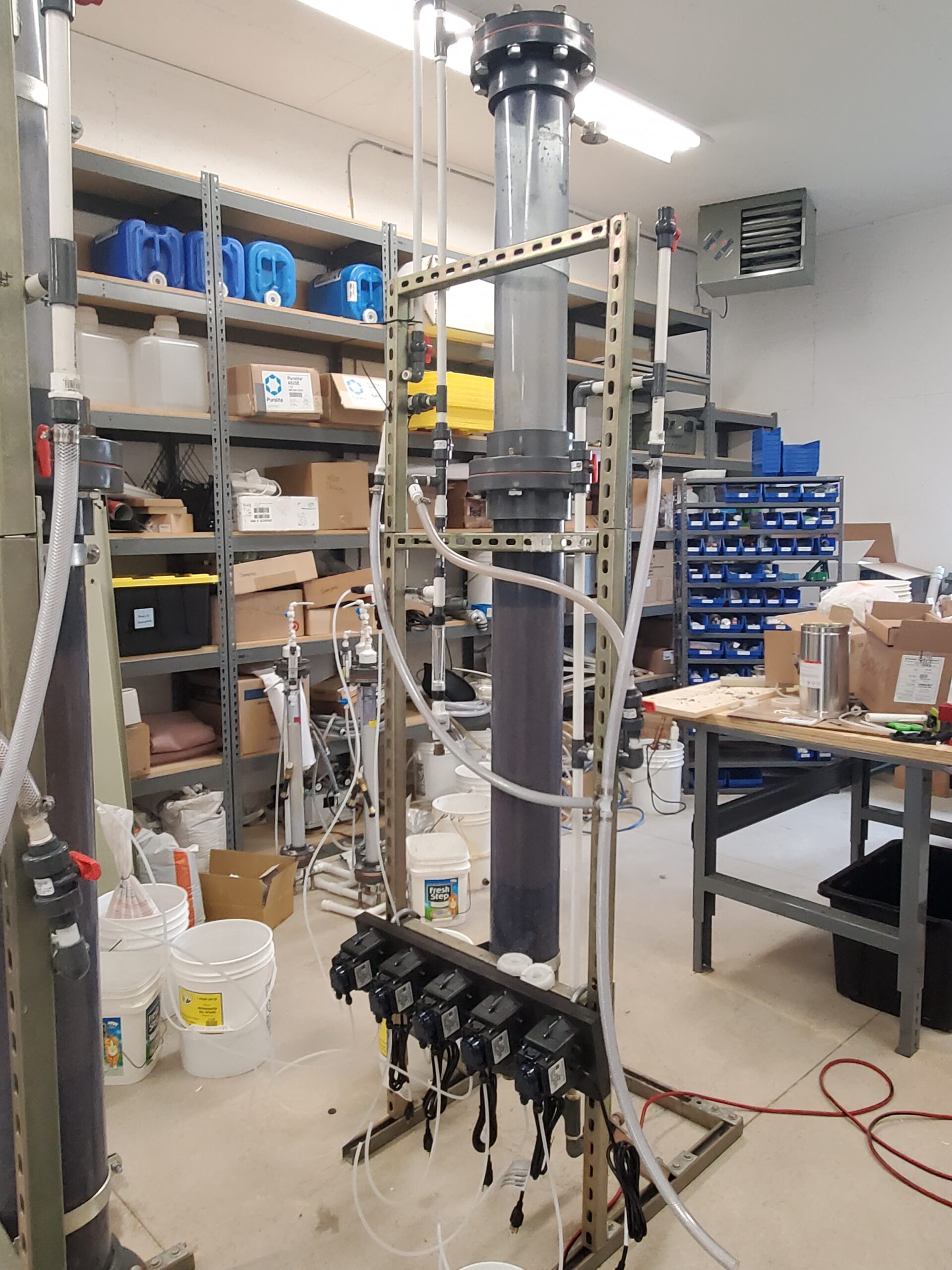
Consultation & Reports
All of WQI’s test results are accompanied by a report that highlights major findings and offers, solutions and actions to address any water quality concerns. These reports are designed to provide clients with answers and actionable steps while briefly explaining the science and reasoning behind the findings.
Engineering Consultation
We offer consultation services for engineers, well drillers, utility operators, building owners, and water management professionals during the design, implementation, and management phases to help minimize and prevent water quality biofilm and corrosion issues.
Report Consultation
Certain issues are more complex than others. All of WQI’s testing is accompanied with a report outlining all the information a client needs to understand their water quality concerns and how to address them. Following testing, a supplemental consultation (via phone or video call) to step through the report is available for an additional cost.
Water Management Plan Review
WQI has an ASSE Certified Legionella Water Safety and Management professional who can help translate the LIT™ results into Water Management Plan modifications. Whether your system has an existing Water Management Plan or is looking to design one, WQI can help ensure your Plan is designed to improve overall water hygiene and minimize the potential for waterborne pathogens. WQI uses the water quality approach described in ASHRAE 514.
Remediation Plans
This plan typically encompasses a thorough assessment of the problem, source tracking, and water quality evaluations. It establishes clear, measurable goals and objectives, details specific remediation actions like best management practices and restoration techniques, and outlines an implementation plan with timelines, responsible parties, and budget considerations.
**We do not sell nor are we affiliated with any company that provides softeners, filters, disinfection devices, or any other water treatment systems on private residences. We feel it is a conflict to tell a customer that their water tested positive for a contaminant and then offer a costly solution. Many times water treatment companies use hard sales and fear tactics to get people to buy water treatment systems they do not necessarily need.
We offer an unbiased water quality analysis that clients can use to make an informed decision as to whether treatment is necessary or required.
